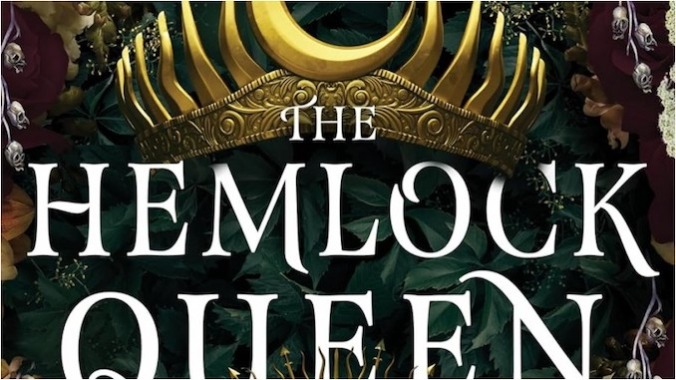Second Nightshade Crown Installment The Hemlock Queen Has a Few Sophomore Stumbles

The Foxglove King was one of the best fantasy novels of 2023, a delicious series opener about death magic, religious obsession, and complex political intrigue. That its sequel, The Hemlock Queen, had big shoes to fill is something of an understatement—so maybe it’s not that much of a surprise that this second novel can’t quite reach the heights of its first. After all, it’s a truth universally acknowledged that middle books are hard. Really hard, even for the best and most talented sort of writers. Second installments must exist in a liminal space between the start of a story and its conclusion, tasked with moving a narrative forward (but not too much) even as it does a little bit of treading water at the same time.
Don’t get me wrong, The Hemlock Queen is still an entertaining read, and, as a writer, Whitten remains gifted at balancing romance and fantasy in her works in ways that feel both natural and necessary. (Her books are, for me, one of the best examples of what a true romantasy should be, and her writing deliberately refuses to privilege one half of the genre over the other.) Her characters are morally complex and emotionally complicated, even when they don’t necessarily get the focus some of us might like. Whitten’s prose remains lush and beautiful—her descriptions of everything from clothing to artwork are stunning—and she takes the chance to delve deep into this series’ magical system and religious lore and runs with it.
The story picks up almost immediately after the events of The Foxglove King. Lore, Bastian, and Gabe have all survived the ritual meant to usher in the new age of the god Apollius and power has shifted in the kingdom of Auverraine. Bastian has now taken the throne as the new Sainted King, with deathwitch Lore at his side. With Anton imprisoned, Gabe has become the new Priest Exalted, the leader of the squadron of warrior priests known as the Presque Mort. Half of the court has been arrested for treason and the folks that remain don’t particularly trust Lore due to her command of the magical death force known as Mortem. Determined to protect her, Bastian does his best to keep her close, but he’s also been behaving erratically and his ability to control Spiritum, Mortem’s mirror and opposite, has grown in powerful and occasionally frightening new ways. Meanwhile, the unexplained voice in Lore’s head is growing louder and a dangerous enemy grows closer to the kingdom’s borders.
The Hemlock Queen is clearly struggling to balance its competing priorities. The first half of the book attempts to illustrate the challenges facing Bastian’s reign—from enemies both foreign and domestic who are seeking to exploit his weaknesses to navigating the difficult changes in his relationships with Lore and Gabe in new roles—Whitten’s determination to drag out what is a very obvious mystery undercuts the entertaining larger political machinations at work in the story. The question of what, exactly, is happening to Bastian and Lore is not nearly as mysterious or subtle as the book seems to want it to be and, as a result, some of the story’s midsection drags while what feels like every character refuses to acknowledge what is obviously in front of them.
-

-

-

-

-

-

-

-

-

-

-

-

-

-

-

-

-

-

-

-

-

-

-

-

-

-

-

-

-

-

-

-

-

-

-

-

-

-

-

-








































